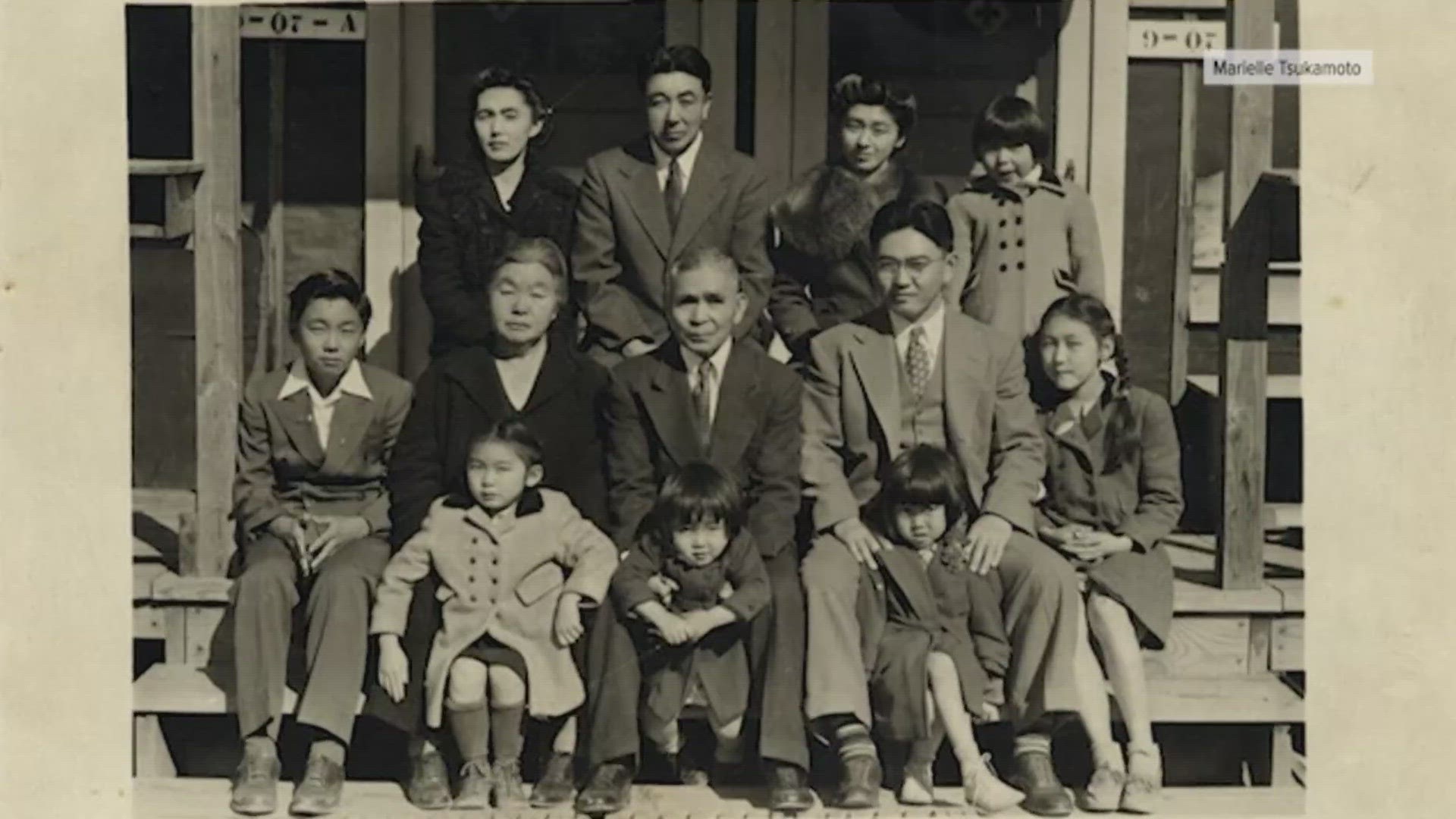SACRAMENTO, California — California Attorney General Rob Bonta has formally apologized for his office's role in the incarceration of Japanese Americans during World War II.
He stated his agency used "legal tools to deprive a generation of Japanese Californians of their liberty and financial security" among the darkest periods of our history.
On Feb. 19, 1942, President Franklin Roosevelt signed Executive Order 9066, which authorized the forced removal of more than 120,000 people of Japanese descent into incarceration camps. This was a result of the attack on Pearl Harbor, which would incite fear around national security on the West Coast and perpetuate long-standing anti-Asian discrimination.
Former California AG Earl Warren was a supporter of the order and also enforced the California Alien Land Law of 1913, which took agricultural land owned by Japanese American families. Asian immigrants were barred from purchasing or leasing land until 1952.
"My mother always felt that she would've respected Earl Warren a lot more if he had had the courage to publicly apologize. He privately mentioned there was some regrets in the decisions he made... but he was never able to admit that. Billions of dollars were lost, the farming industry was changed, businesses and whole communities were destroyed," said Marielle Tsukamoto, who lives in Elk Grove.
GET MORE RACE & CULTURE FROM ABC10:
►Explore the Race & Culture home page
►Watch Race & Culture videos on YouTube
►Subscribe to the Race and Culture newsletter
Tsukamoto was 5-years-old when she and her family were forcibly removed from their homes in Florin to temporary barracks in Fresno, and ultimately forced into an incarceration camp in Jerome, Arkansas in Oct. 1942. She was only 4-years-old on the day they first left their home, but still recalls comforting her grandmother, who she endearingly referred to as 'Obaasan,' who feared she would never be able to return.
"I remember my grandmother standing in the garden looking at her rose bushes, crying and telling me she didn't think she would ever see them again," said Tsukamoto. "I took her hand and I said, 'Obaasan, you will come back.' And she did."
Even though the formal apology came long after incarceration, Tsukamoto described it as meaningful and heartwarming. She believes her family would've felt the same.
"I know that for my parents who are long gone and for my grandparents who suffered the most during the incarceration experience, it would mean so much. My parents never gave up on the hope and idea that as an American, that we would be treated honorably... justly," said Tsukamoto.
Tsukamoto said those in the Issei generation, referring to first-generation Japanese Americans who emigrated from Japan and who were not eligible for U.S. citizenship, did not support Japan during the war, including her own grandmother.
"They left that country and came to the United States to be Americans, even though we were not always welcome. My grandmother told my cousins, she told them Japan was going to lose... She didn't support the concept of Japan being so aggressive in the East," said Tsukamoto. "They thought they would have a better opportunity here in this country."
Japanese American families were able to achieve success, building their livelihoods and working the farms, mines, canneries and railroads. Success was also evident in the growth of restaurants, boarding houses, department stores and shops. Many Japanese farmers were able to launch successful agricultural businesses and by 1920 immigrant farmers had more than 450,000 acres of land in California.
Japanese immigrants made a tiny percentage of the U.S. population, yet organized campaigns attempted to exclude Japanese immigrants from achieving greater success. Sensational reports depicted Japanese people as a threat — enemies of the American worker and American society, reminiscent of Yellow Peril attitudes that largely targeted Chinese immigrants. Legislators and mayors called for a Japanese Exclusion Act in 1924.
"Most historians say history gets repeated over and over again. And unless there is something done that breaks that cycle, the question then becomes, 'Who is the next target?'" said Tsukamoto. "I'm so grateful I lived long enough for Attorney General Rob Bonta and his office to apologize... It is actually huge. No matter how late it is, it is on the record."
The apology was made on the 35th anniversary of the Civil Liberties Act of 1988, which granted reparations to Japanese Americans who were incarcerated during the war. The last time California issued a formal apology for discriminating against Japanese Americans was in February 2020.
We want to hear from you!
The Race and Culture team's mission is to serve our diverse communities through authentic representation, community engagement and equitable reporting.
Accomplishing our goals of inclusive reporting requires hearing from you. Is there a person or place that you want us to highlight? Email us at raceandculture@abc10.com or fill out the form below.

